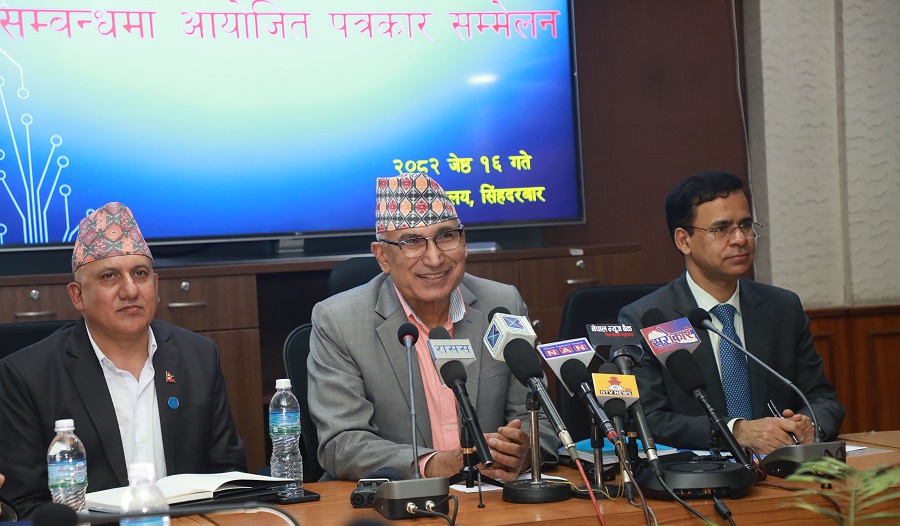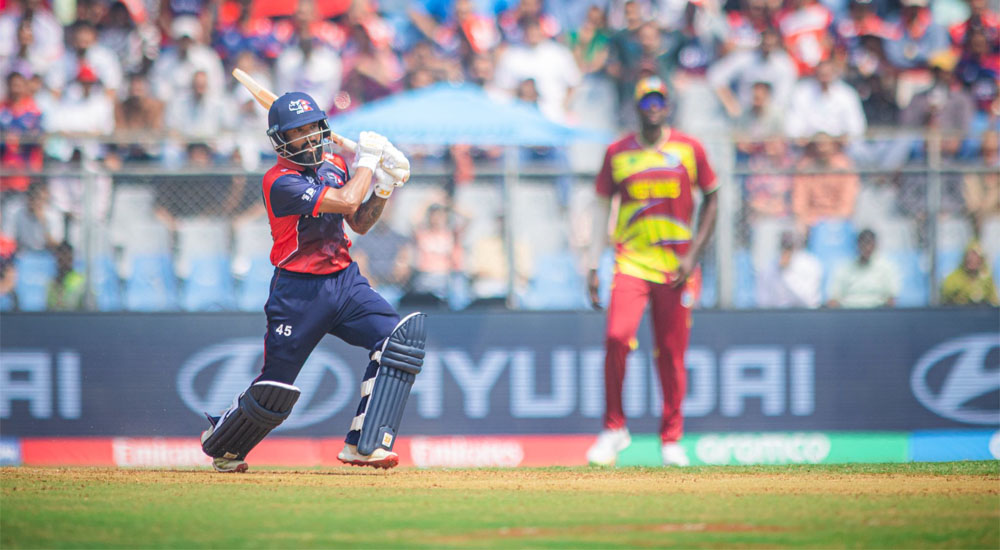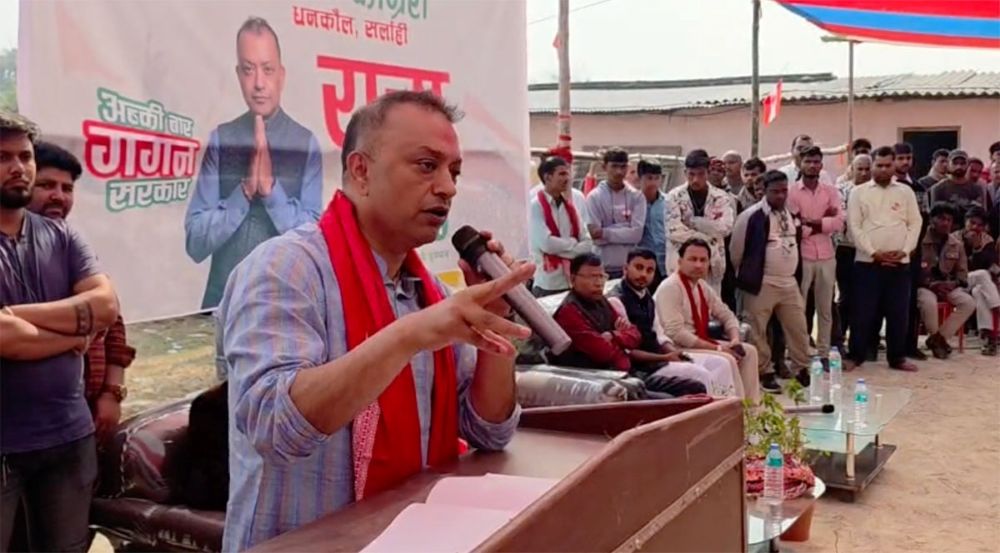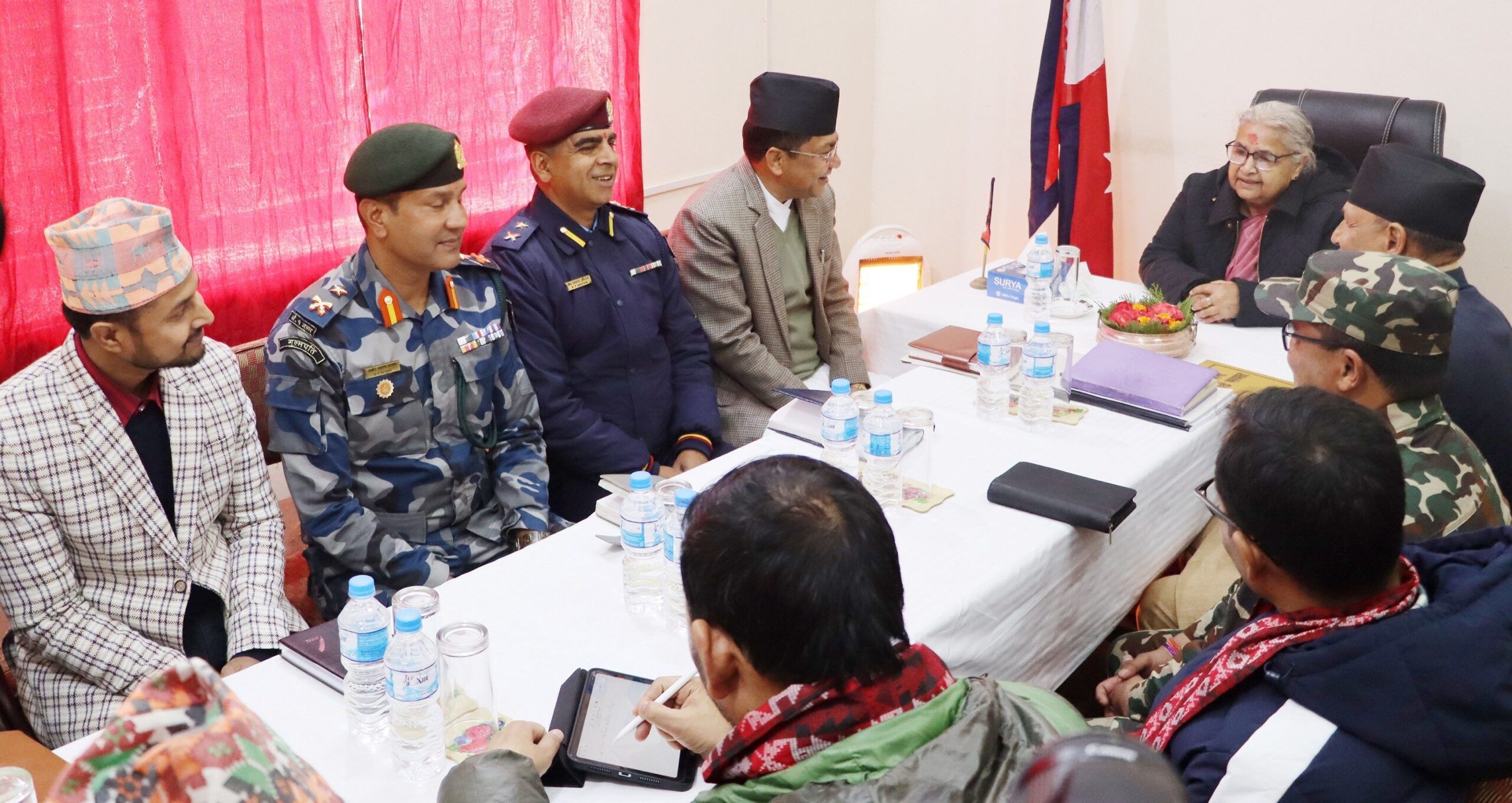Kathmandu, May 31: Deputy Prime Minister and Finance Minister Bishnu Prasad Paudel has said that the budget for the fiscal year 2025/26 has been presented with a focus on strategic allocation and
fiscal prudence.
In a ‘post-budget’ discussion organised at the Ministry of Finance on Friday, Deputy Prime Minister Paudel said that the budget had corrected the issues that drew criticism. “The budget has been presented being realistic, reform-oriented, grounded in fiscal discipline-aimed squarely at effective implementation rather than populist promises,” he said.
DPM Paudel unveiled the budget of Rs. 1,964.11 billion for the upcoming fiscal year 2025/26 at the joint session of the federal parliament on Thursday.
He claimed that the project has been fixed by maintaining the minimum cost standard of Rs. 30 million and budget has been allocated as per the standard.
He said that it is challenging to stay within this limit amid unlimited aspirations for development and limited resources. The budget of the 4,654 projects has been cut, he added.
He said that the government has made efforts to balance current expenditure while maintaining frugality.
DPM Paudel said that the budget has adopted a policy of increasing capital expenditure, keeping current expenditure within certain limits, and increasing the amount of financial transfers to the provincial and local levels.
He also said that he is optimistic that the revenue target set in the budget will be met by the end of the upcoming fiscal year. DPM Paudel said that the estimate for internal debt is within the limits set by the National Natural Resources and Fiscal Commission.
Immediate implementation priority
He said that arrangements have been made so that there is no need to wait until the beginning of the fiscal year for budget implementation.
“The question of budget implementation is challenging. This budget is not brought to please the ears of the citizens. It will be implemented effectively. From today, my focus will be on budget implementation,” he said. “The Ministry of Finance has already started work of formulating a practical and objective budget implementation action plan.”
“There is no need to wait until the beginning of the fiscal year to implement the budget and that projects whose preparations have been completed can start the procurement process from today itself,” he said.
The support from all, including government bodies, ministries, civil society, general people and media is important for the implementation of the budget, he said.
DPM Paudel said that budget expenditure has been facilitated and arrangements have been made to start spending the budget allocated to projects whose preparations have been completed.
He said that the capacity of project management should be increased, vacancies should be filled in time (arrangements have been made to do so by mid-July), thematic ministries should take the lead in policy reforms and budget implementation, and prompt decisions and inter-agency coordination should be made. He said that the implementation of this budget will expand economic activities, increase private investment and employment, complete projects in time and achieve the economic growth of 6 per cent.
Speaking at the programme, Vice Chairman of the National Planning Commission, Prof. Dr. Shiva Raj Adhikari, said that it would be important to see how the budget implementation progresses and what its results look like. He said that policy-level, practical and structural reforms are being carried out to make budget implementation effective.
“The NPC coordinates with all ministries and agencies for budget implementation, monitoring and evaluation. We will soon start discussions with all ministries to prepare a budget implementation action plan,” said Adhikari.
Similarly, he also expressed his hope that the upcoming budget would focus on the implementation of the 16th Periodic Plan. Nepal Rastra Bank Governor Dr. Biswo Nath Poudel said that the introduction of various laws related to monetary policy management and the establishment of asset management companies for banks and financial institutions is positive.
Policy, structural reforms
DPM Paudel claimed that the implementation of the proposed budget for the upcoming fiscal year will lead to long-term policy reforms.
He said that the budget has adopted the path of policy reforms.
He said that a policy has been adopted to utilise alternative development finance for policy reforms through budget implementation, improvements in project management and procurement processes will increase capital expenditure, and that a standard of Rs. 30 million for federal projects has been implemented.
In addition, the policy of austerity and cost reduction has been implemented to balance current expenditure, provision has been made for procurement to be carried out after May 30, monitoring of projects worth more than Rs. 250 million through a national dashboard, limitation of grants to a maximum of 50 per cent of the cost, and provision has been made for the provinces and local levels to bring a balanced budget.
DPM Paudel said that land use in forest areas has been simplified, social security expenses and health insurance have been further managed, contingency and consultant expenses have been controlled, social security and service delivery have been systematised based on the national identity card.
He said that policy reforms have been proposed to promote foreign investment.
Encouraging the private sector to invest
DPM Paudel said that the budget has been introduced with the aim of encouraging the private sector to invest. “We have imposed the new tax rate on items like liquor, beer, and wine based on price,” he said.
“In addition, such things have been introduced in the budget for the upcoming fiscal year with the aim of motivating the private sector to invest and facilitating investment in projects.”
The budget has been introduced with the aim of supporting the production, innovation, and development of green hydrogen and attracting investors,” DPM Paudel said.
He said that the budget has focused on the promotion of startup. The provision of income tax exemption for startup businesses for up to 5 years has been increased to a turnover limit of up to Rs. 100 million.
He said that an arrangement has been made to exempt industries that manufacture and assemble electric vehicle charging machines from income tax for five years from the date of commencement of business.
He said he was proud of his decision not to increase taxes on the import of electric vehicles and to continue the existing tax.
Earlier, businessmen had increased the import of electric vehicles, with an intention of making a profit as the government often used to increase taxes on electric vehicles in its new budget.












